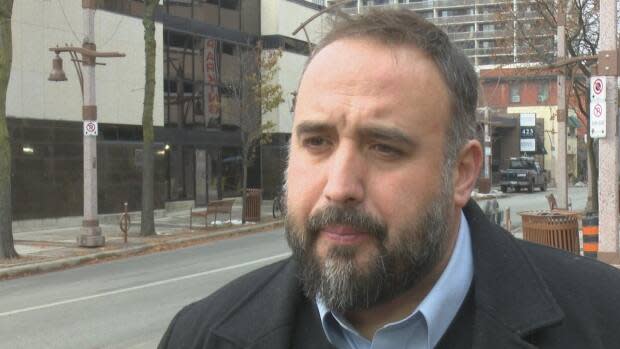Everyone vaccinated by September. Here's a look at the Windsor-Essex health unit's vaccination plan
As Windsor-Essex continues to have one of the highest COVID-19 case rates in Ontario, the health unit said it sent its community vaccination plan off to the provincial government on Wednesday.
Two external groups, a task force and vaccine prioritization group, are assisting the health unit in working out the details of a plan that seeks to have an estimated 320,000 people vaccinated by September, said the Windsor-Essex County Health Unit's medical officer of health Dr. Wajid Ahmed and CEO Theresa Marentette
This planning is being done as Windsor-Essex continues to be near the top of the charts with high COVID-19 rates.
As of Thursday, Ahmed said that the region is second to Peel for the highest COVID-19 case rate in Ontario. Despite a slight downward trend the last few days, Windsor-Essex still has a high positivity rate sitting at 8.4 per cent.
To get the vaccine out, Marentette said during the health unit's board meeting Thursday that it wants to have local health resources help distribute the vaccine, when it is made available on a larger scale.
This includes primary care physicians and pharmacies, she said, adding that mobile clinics and mass immunization clinics may also be used if the vaccine supply increases.
"Overall the vaccination plan will use these modes of delivery to get as many people vaccinated as possible. Our target is by September to have as many people or everyone who wants the vaccine to be vaccinated," she said.
But she said this can change depending on vaccine shipments.
Earlier this week, Windsor Regional Hospital, which receives the Pfizer-BioNTech vaccine, said that supply problems means they have had to stop giving out the first dose of the vaccine. Hospital CEO David Musyj said in a statement that the delay also means that some people may have to wait longer than expected to receive their second dose.
While the health unit will continue to follow the priority listing established by the province, Marentette said it is developing sub-prioritization categories in each group — a task that the prioritization committee that they have established is helping out with.
"Where there is a vaccine delay or shortage of the vaccine ... there is a group that will have to look at the ethical framework and health equity lens to ensure that in the case of not enough vaccines that the priorities are established and that all stakeholders adhere to the prioritized groups," Marentette said.

Ahmed said the prioritization committee includes members from six organizations: a local acute care hospital, University of Windsor's research ethics board, the Multicultural Council of Windsor-Essex, a local addiction and mental health service agency, Windsor Police Service and the Southern Ontario Aboriginal Health Access Centre.
At this time, Marentette said they have already identified some key priority groups in Windsor-Essex that they hope to support in the next phase of the vaccine rollout.
Those included are:
First Nations, Metis and Inuit people.
Seniors receiving chronic at-home care.
People experiencing homelessness.
Low German speaking community.
Newcomers.
Agri-farm workers.
The health unit said that the final retirement home in the region has received the first dose of the COVID-19 vaccine Thursday evening. It is now relying on another shipment of the Moderna vaccine, that is expected early February, to provide the second dose to everyone that has received the first.
Ahmed said it is working with St. Clair College to develop a landing page on the health unit's website that will outline who the current vaccine priority is and the steps people need to take to get the shots.
No community vaccine list
Health unit board member Rino Bortolin, who is also a Windsor city councillor for Ward 3, said he's received inquiries from seniors who are living in the community and are looking to sign up to receive the vaccine.
Marentette said she has also received "a lot of calls" from people who want to be on a list.

"People will be disappointed when they call right now because there is no list," she said. "I think there's a misconception ... people are expressing an interest, which is great because we want everyone to get vaccinated ... we want people to have access to the vaccine."
The next step is to work with physicians, to likely have them directly reach out to their patients. The health unit said it is also getting help from Home and Community Care, which has a list of seniors who require chronic at-home support and will need to get the vaccine.
Marentette added that she knows the health unit's communication hasn't been the best when it comes to next steps, but that they'll "do better."
"[We are] recognizing that we need a broader communication strategy so people are not wondering what's happening and thinking there's a way to get on a list that doesn't exist or that we're somehow missing them," she said.

